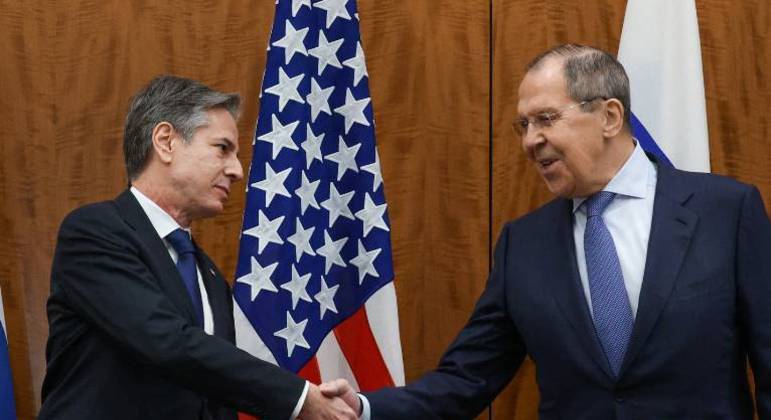Russian and US ambassadors to discuss crisis in Ukraine – News
3 min read
US Secretary of State Anthony Blinken will speak by telephone with Russian Foreign Minister Sergei Lavrov today (January 1) to decide the next steps in the Ukrainian crisis.
After exchanging written messages between two former Cold War rivals, it was time to resume the verbal discussion with an important phone call.
The U.S. government received a written response from Russia last week to news of the crisis in Ukraine, a US diplomatic spokesman said Monday without releasing the contents of the letter.
The main obstacle to the crisis remains: Moscow demands that NATO (the North Atlantic Treaty Organization) still close the door on entry into Eastern European countries, especially Ukraine. This demand is considered unacceptable by the West, especially Washington, because it would be tantamount to acknowledging that Russia has a sphere of influence reserved for it.
The talks will take place after a heated debate in the UN Security Council on Monday Between Russia and the United States, it addressed the accumulation of Russian troops on the Ukrainian border.
Western nations accuse the Kremlin of preparing more than 100,000 troops for the invasion of the Ukrainian border.
Russia has denied any involvement in the attack, saying it needed formal security “guarantees”. Legal assurance that Ukraine will never join NATO.
The United States and the North Atlantic Treaty Organization reject key demands of the Russian government, but Washington has opened the door to negotiations on other topics, such as missile launches or mutual limitations on military exercises.
“Mania”
During a Security Council meeting, Russia’s ambassador to the UN, Vasily Nefenzia, accused Washington of seeking to propagate “hysteria” and “deceive the international community with baseless allegations.”
Her US envoy, Linda Thomas-Greenfield, said the deployment of more than 100,000 Russian troops near Ukraine threatened “international security.” He said there was evidence that Moscow was planning to send more than 30,000 additional troops to Belarus, which is very close to the Kremlin, in early February.
Diplomatic maneuvers continue, and sanctions and preparations continue. The United States and the United Kingdom, one of the preferred investment zones of Russian oligarchs, said on Monday that they were aiming to reach the pockets of those inside Russia’s inner circle and those affiliated with the Kremlin.
If London’s intentions continue, there is a risk that Russian millionaires will be unable to freeze assets in the UK and enter its territory.
It is equally impossible for a UK company or individual to transact with them.
“We will not retreat, we will not remain silentI am listening to the threats of US sanctions, “the Russian embassy in Washington said in a statement on its Facebook page.
Boris Johnson in Kiev
Europeans do not want to be left behind in Washington’s diplomatic efforts. On the same day as the telephone conversation between US and Russian diplomatic leaders, British Prime Minister Boris Johnson will visit Kiev for a meeting with Ukrainian President Volodymyr Zhelensky.
“We urge Russia to step back and begin talks to find a diplomatic solution and avoid further bloodshed,” the British head of state, who is expected to meet with Russian President Vladimir Putin this weekend, said in a statement on Monday.
The British Prime Minister will present to NATO this week a plan to mobilize troops in response to the growing “anti-Russian trend” in Ukraine.
Zelensky said on Tuesday that diplomatic and military support for the country had been enormous and unconditional since Moscow annexed Crimea in 2014.
Polish Prime Minister Mateusz Morawiecki will also visit Kiev. Hungarian Prime Minister Viktor Orban will meet with Putin in Moscow, where tensions with Ukraine have been criticized by the Hungarian opposition.
On the military front, the movements continue: several Western nations have recently announced the sending of new troops to Eastern Europe.

“Communicator. Award-winning creator. Certified twitter geek. Music ninja. General web evangelist.”




